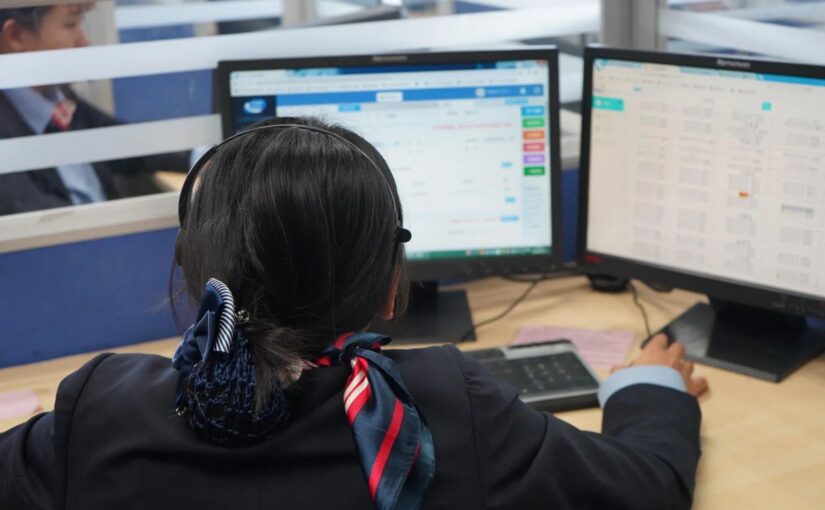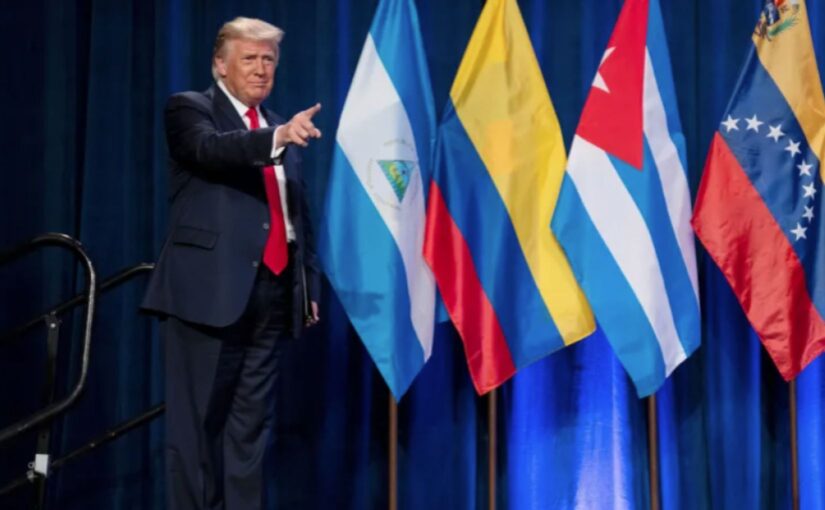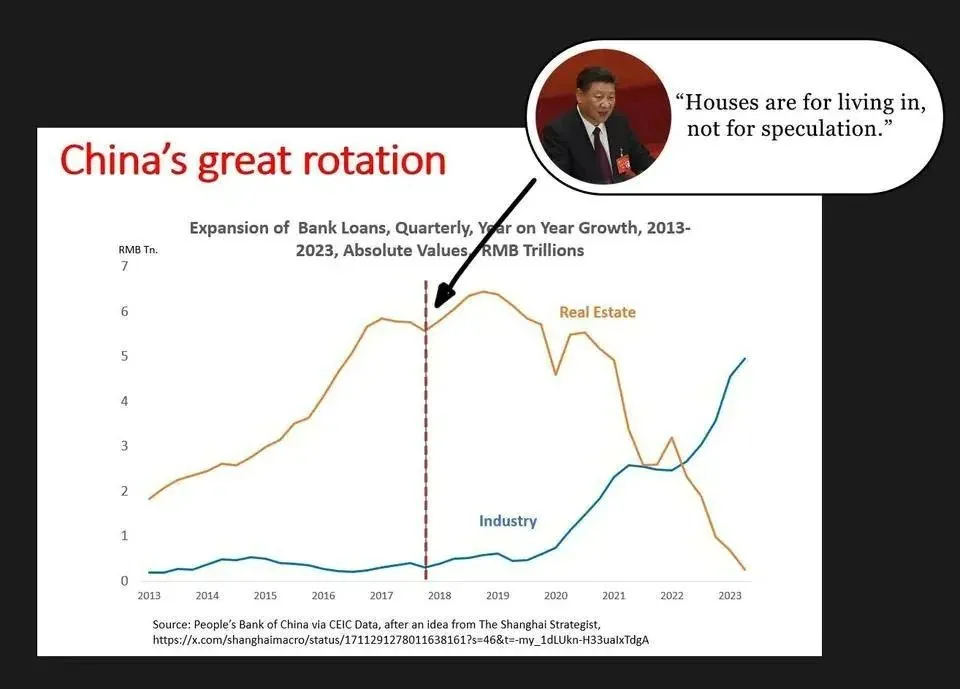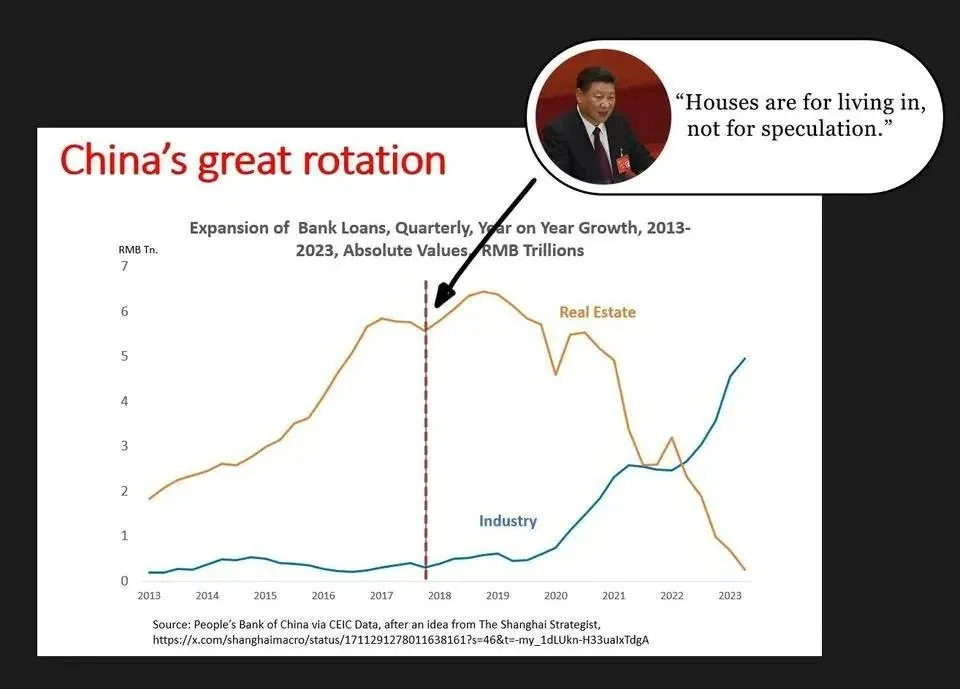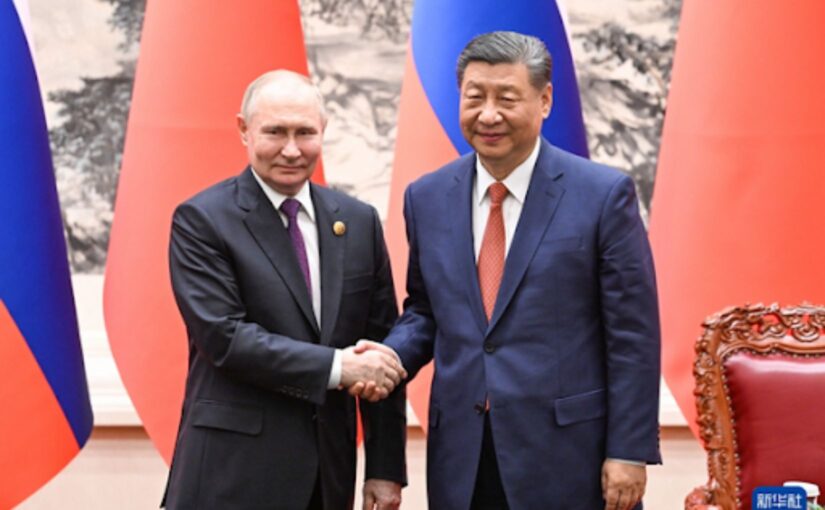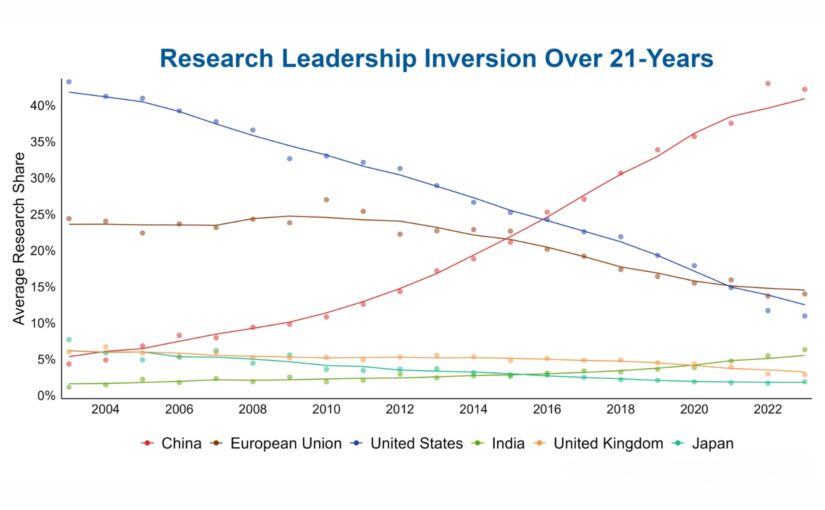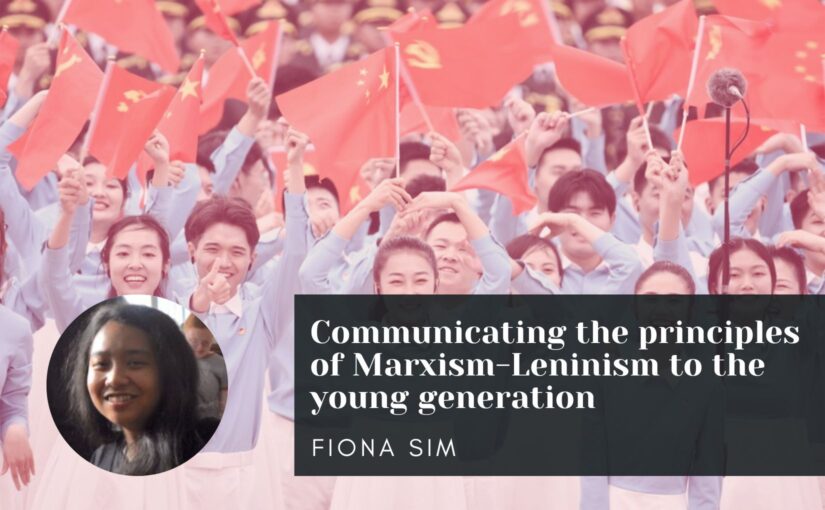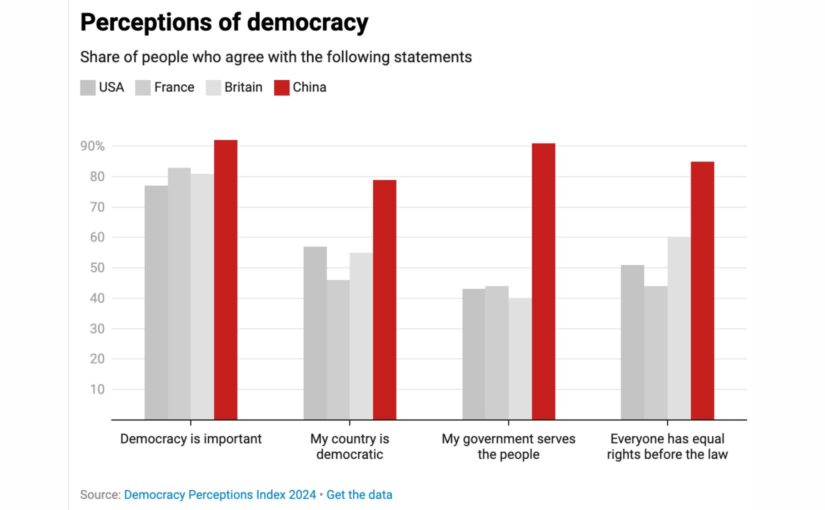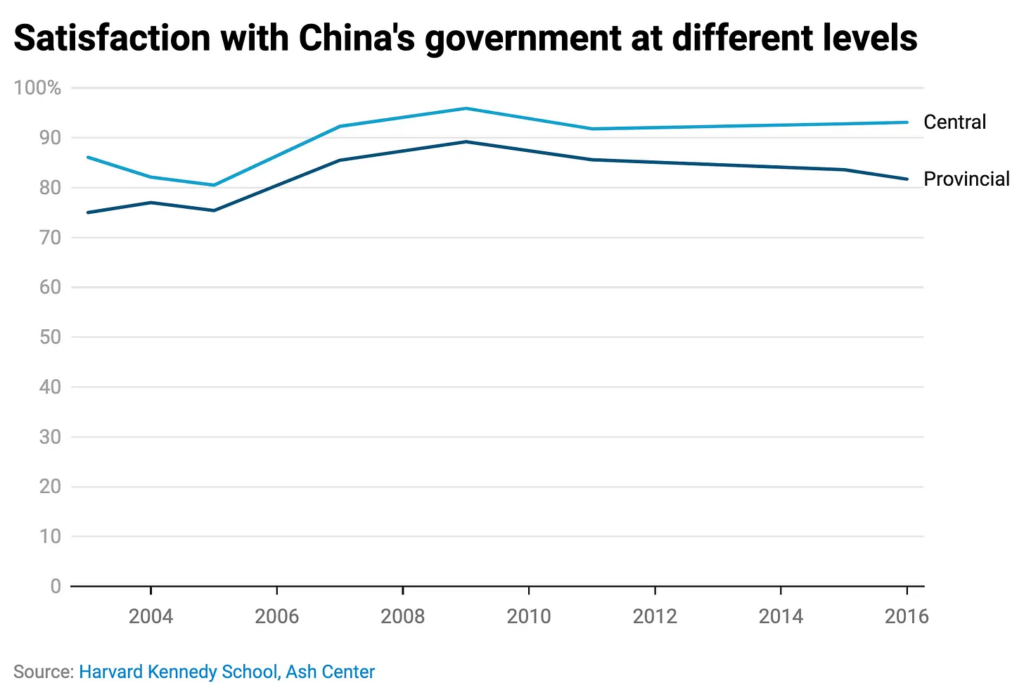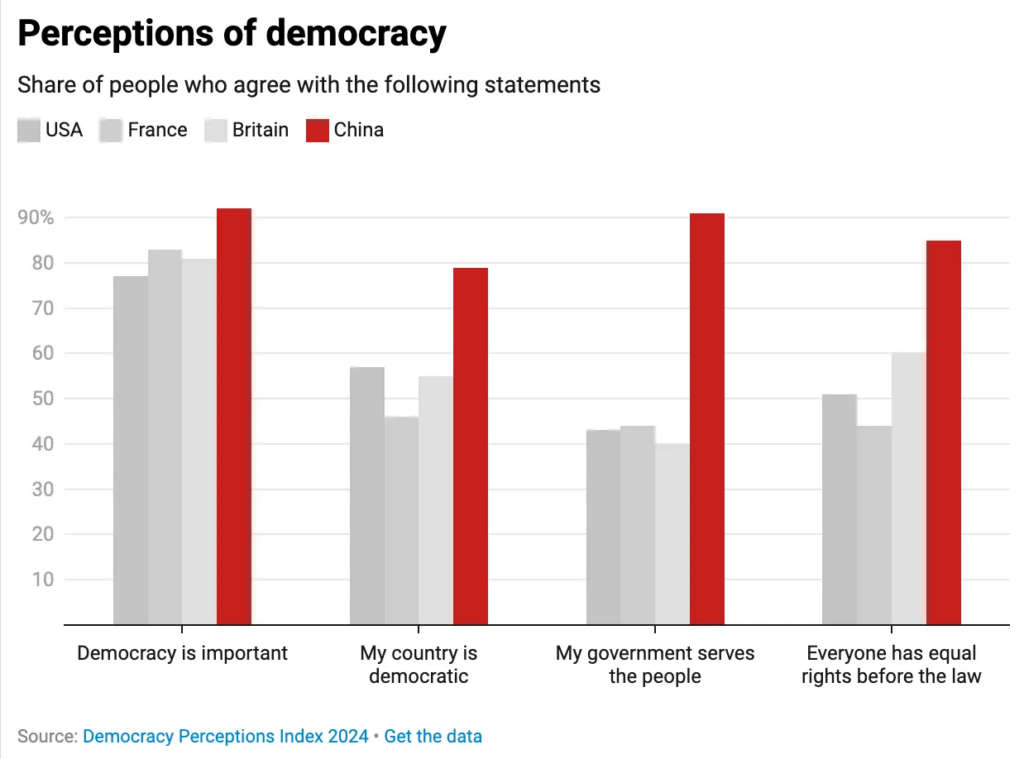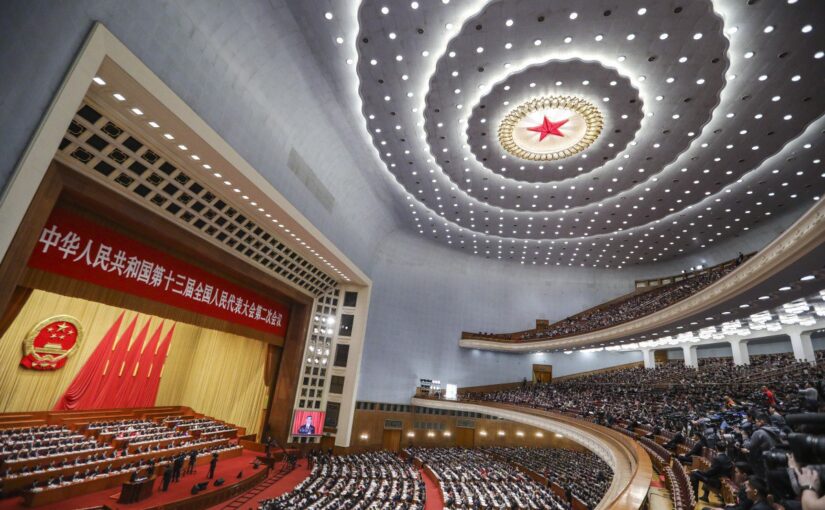January 25, 2025 Global Times
Mao Ning Photo: Chinese Ministry of Foreign Affairs
In response to a U.S. State Department statement claiming new U.S. Secretary of State Marco Rubio discussing Beijing’s “dangerous and destabilizing actions in the South China Sea” with his Philippines counterpart Enrique Manalo over phone and underscoring the “ironclad” U.S. defense commitment to Manila, Chinese Foreign Ministry spokesperson Mao Ning said on Thursday that the U.S. is not a party to the South China Sea issue and has no right to interfere in the maritime issues between China and the Philippines.
Mao said “the military cooperation between the U.S. and the Philippines should not undermine China’s sovereignty and maritime rights and interests in the South China Sea, still less should such cooperation support or advance the Philippines’ illegal claims.” China will continue to take necessary steps to firmly safeguard its territorial sovereignty and maritime rights and interests and uphold peace and stability in the South China Sea, said Mao.
U.S. Secretary of State Marco Rubio spoke Wednesday local time with Philippine Secretary of Foreign Affairs Enrique Manalo about issues of mutual concern, including so-called China’s “dangerous and destabilizing actions in the South China Sea.”
Rubio underscored the U.S.’ “ironclad commitments” to the Philippines under the Mutual Defense Treaty. The two sides also exchanged views on ways to advance security cooperation, expand economic ties for shared prosperity, and deepen avenues for further regional cooperation, according to a readout released by the U.S. Department of State on Wednesday.
Li Haidong, a professor at the China Foreign Affairs University, said that the U.S. will continue the diplomatic rhetoric, but to what extent Rubio’s remarks will turn into concrete actions in the region is still a question.
“The Marcos Jr. administration of the Philippines also needs to learn that the U.S., especially under the leadership of the Trump administration, will not be hijacked by any other countries, including its allies, for any unnecessary dangers,” Li noted.
Lü Xiang, an expert on U.S. studies and research fellow at the Chinese Academy of Social Sciences, told the Global Times on Thursday that the Trump administration is likely to continue to launch groundless accusations against China’s legitimate acts in the region.
“However, the Trump administration will be less interested in getting involved too much on issues not directly related to U.S. core interests, as this is what ‘America First’ means. In addition, China now has much more strength [to safeguard its legitimate rights and interests] in the region, and the consequences of being ‘unnecessarily provocative’ would be unaffordable to both Washington and Manila,” Lü noted.
The Chinese military conducted joint sea-air combat readiness patrols in the South China Sea from January 17 to 19 to maintain peace and stability in the area, according to a statement by the Chinese People’s Liberation Army (PLA) Southern Theater Command. The statement was issued after the Philippine Navy held live fire drills and carried out joint maritime exercises with the U.S. in the South China Sea.
“Any military activity that stirs up trouble in the South China Sea is within our control,” the PLA statement read. The statement directly targets the provocative exercises conducted by the Philippine navy near Huangyan Dao, and its joint exercises with the U.S., Zhang Junshe, a Chinese military expert, told the Global Times.
Humprey Arnaldo Russel, director of the China Research Center in the Institute for Strategy and Global Studies at the University of Indonesia, told the Global Times in an exclusive interview published on Tuesday that “ASEAN is a family. When a family faces a problem, it is unwise for one member to turn to external parties for ‘help.’ ASEAN, as a unity, is bound by shared values such as harmony, non-interference and the commitment to finding peaceful solutions to problems.”
“These core values will not change because of any single member’s actions. Therefore, it would be far more beneficial for the Philippines to engage directly with China, as this is where the solution lies,” said the Indonesian expert.
Source: Global Times
https://www.struggle-la-lucha.org/2025/ ... ippine-fm/
******
China’s Shocking DeepSeek AI Pops US Big Tech Monopoly Bubble
January 30, 2025

By Ben Norton – Jan 29 2025
Chinese AI company DeepSeek shocked the West with a groundbreaking open-source artificial intelligence model that beats huge Silicon Valley Big Tech monopolies. Is the US stock market bubble popping?
China is making enormous progress in the development of artificial intelligence technology, and it has set off a political and economic earthquake in the West.
The stocks of US Big Tech corporations crashed on January 27, losing hundreds of billions of dollars in market capitalization over the span of just a few hours, on the news that a small Chinese company called DeepSeek had created a new cutting-edge AI model, which was released for free to the public.
The UK’s leading newspaper The Guardian described DeepSeek as “the biggest threat to Silicon Valley’s hegemony”.
[youtube]https://youtu.be/6hRmK84_K7Q[/youtube]
This is widely being dubbed a “Sputnik moment” — a reference to 1957, during Cold War One, when the Soviet Union launched the first satellite in outer space, called Sputnik 1.
The United States had significantly underestimated the technological capabilities of the former Soviet Union then, just as the US has vastly underestimated the technological capabilities of China today.
What is remarkable is that this small Chinese company was able to develop a large language model (LLM) that is even better than those created by the US mega-corporation OpenAI, which is half owned by Microsoft, one of the biggest corporate monopolies on Earth.
In order to develop its groundbreaking R1 model, DeepSeek reportedly spent around $6 million.
That would be a mere rounding error in Silicon Valley. US Big Tech corporations have plowed roughly $1 trillion into developing artificial intelligence in the past decade. In 2024 alone, Silicon Valley capital expenditure on AI was $197 billion, and it is expected to be $234 billion in 2025.
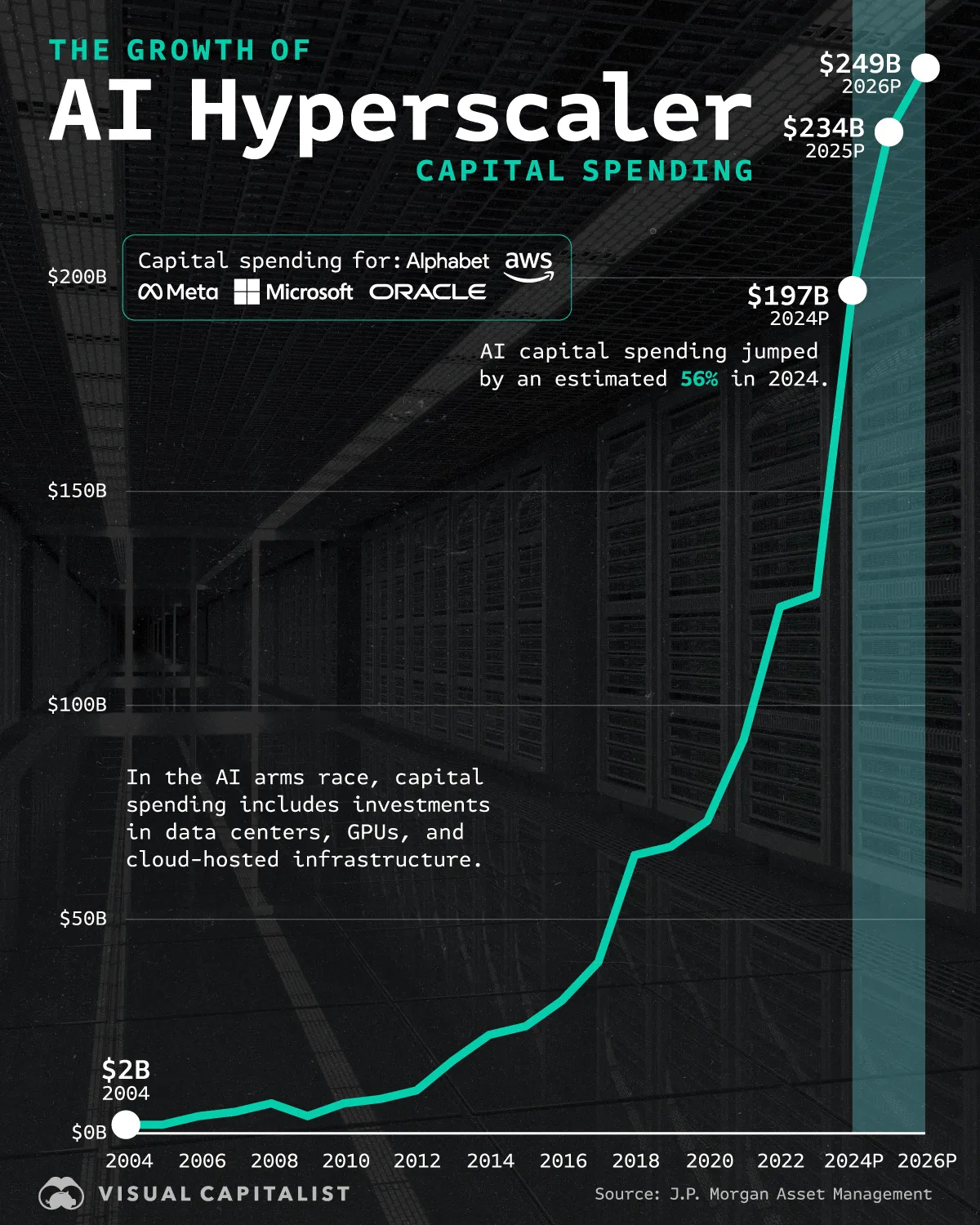
When OpenAI announced in December 2024 that it had introduced ChatGPT Pro, it was charging $200 per month to use the application.
Compare that to the DeepSeek R1 model, which is open source. Not only is their app free to use, but you can download the source code and run it locally on your computer. It can even be used without the internet.
Even better, DeepSeek’s LLM model only requires a tiny fraction of the overall energy and computing power needed by OpenAI’s models. In short, it is cheaper to run, better for the environment, and accessible to the entire world.
This is why the week it was launched, in late January, DeepSeek became the number one app in the United States, overtaking ChatGPT.
Alarm bells immediately sounded in Washington. US officials claimed the app is a supposed “national security” threat — their favorite excuse to justify imposing restrictions on Silicon Valley’s Chinese competitors.
The US Navy promptly banned DeepSeek, citing “potential security and ethical concerns”.
Starting in Donald Trump’s first term, and continuing through the Joe Biden administration, the US government has waged a brutal technology war and economic war against China.
Washington hit China with sanctions, tariffs, and semiconductor restrictions, seeking to block its principal geopolitical rival from getting access to top-of-the-line Nvidia chips that are needed for AI research — or at least that they thought were needed.
DeepSeek has shown that the most cutting edge chips are not necessary if you have clever researchers who are motivated to innovate.
This realization unleashed pandemonium in the US stock market.
In just one day, Nvidia shares fell 17%, losing $600 billion in market cap. This was the largest one-day drop in the history of the US stock market.
This was a blow to global investor confidence in the US equity market and the idea of so-called “American exceptionalism”, which has been consistently pushed by the Western financial press.
Some financial analysts are now publicly wondering if this could be the beginning of the popping of the massive bubble in the US stock market.
A look at the Buffett Indicator, which measures the market capitalization of publicly traded stocks in the US in comparison to GDP, shows that it is at the highest level ever recorded, at more than 200% of GDP. This is significantly higher than it was at the peak of the Dot-com bubble, which burst in 2000.

Another common metric, the price-to-earnings ratio, or P/E ratio, which compares the inflation-adjusted earnings of US publicly traded companies to the price of their stocks, similarly demonstrates that they are very frothy — at the highest levels since the Dot-com bubble, and even higher than they were in 1929, at the peak of the stock market mania which crashed and contributed to the Great Depression of the 1930s.

This is why even Jamie Dimon, the CEO of the largest US bank, JPMorgan Chase, warned at the World Economic Forum in Davos in January that the US stock market is “inflated”.
What is even more concerning is how extremely concentrated the US equity market is.
Much of the growth in recent years in the S&P 500, the index of the 500 largest publicly traded companies on US stock exchanges, has been driven by a small handful of Big Tech corporations, which are known as the Magnificent 7, or the Mag7. These are Apple, Microsoft, Nvidia, Amazon, Meta, Tesla, and Alphabet.
Together, those seven Big Tech corporations made up a third of the weight of the entire S&P 500, as of December 2024.
Moreover, those same seven companies made up nearly a quarter of the weight of the MSCI World Index.

There are trillions of dollars from investors all around the world that have flooded into the stocks of these US Big Tech monopolies under the assumption that they have no real competition, that they’re the only game in town.
However, China has shown that there are competitors, and they are challenging the technological chokehold that Silicon Valley has on most of the world.
Given how much the US economy has been financialized in the neoliberal era, and how much depends on continuing to inflate asset prices, a crisis could be on the horizon if the AI bubble pops.
https://orinocotribune.com/chinas-shock ... ly-bubble/
******

Only Pathetic Bootlickers Spend Their Energy Criticizing China
The buzz around Xiaohongshu and then DeepSeek has had an unusually high volume of westerners speaking positively about China for the last couple of weeks, which of course means we’re also seeing many westerners falling all over themselves to say “Well actually China is actually quite bad actually” in response.
Caitlin Johnstone
January 29, 2025
The buzz around Xiaohongshu and then DeepSeek has had an unusually high volume of westerners speaking positively about China for the last couple of weeks, which of course means we’re also seeing many westerners falling all over themselves to say “Well actually China is actually quite bad actually” in response.
Western liberals who fancy themselves enlightened and critical of power tend to get very squirmy and uncomfortable in their skin when they hear people saying positive things about the PRC, and love nothing more than to tell you that China is just as evil and tyrannical as the western power alliance, if not worse.
This is objectively, measurably false. China hasn’t spent the 21st century killing people by the millions in wars of aggression. China isn’t circling the planet with hundreds of military bases while working to destroy any nation or group anywhere in the world who disobeys it. China isn’t strangling nations around the globe with starvation sanctions for refusing to bow to its dictates. China didn’t just spend 15 months lighting the middle east on fire and backing a live-streamed genocide. China hasn’t spent the last three years endangering the world in frequently terrifying acts of nuclear brinkmanship with a rival nuclear superpower. Only the US-centralized empire has done this.
Whenever I point this out I get empire apologists going “Well yeah, SO FAR! We haven’t seen China doing all that evil foreign policy shit YET because they’re still not powerful enough!” Which is just silly. China absolutely is powerful enough to be a whole lot more abusive and murderous abroad, and it simply isn’t. Westerners love to claim that China has secret agendas to conquer the world someday (hilariously implying that these hypothetical future abuses make China morally comparable to the US empire’s current known abuses), but if you actually dig into the evidence for these claims what you’ll find every time is that all they provide evidence for is China’s openly stated goal of a multi-polar world that isn’t ruled by Washington.
Our ancestors set sail to conquer the world; their ancestors built a wall. This notion that China has an interest in ruling over a bunch of white foreigners has as much rational basis as old racist superstitions that black and brown people wanted equal rights so that they could come and steal white men’s wives and have sex with their daughters.
They’re just a better civilization than ours — not because theirs is miraculous or perfect, but because ours is just that murderous and dystopian. They simply do the normal thing while we do the freakish thing: they make the lives of their citizens better and better and avoid unnecessary wars, while western governments make the lives of their citizens worse and worse while plunging into new acts of mass military slaughter every few years.
Any criticisms you could level at China — that their domestic policy is more authoritarian than ours, that their culture is more conservative, etc — are eclipsed in moral terms by the depravity of our own western governments by orders of magnitude. And why would you even level such criticisms while living under the single most bloodthirsty and tyrannical power structure on earth? That would be like a German living under the Third Reich looking overseas and bitching about Brazil.
I find nothing more pathetic than a westerner who lives under the shadow of the US empire spending their time and energy criticizing the abuses of nations who lie outside that power structure. It’s an embarrassing, bootlicking way to live. Focus on criticizing the far greater abuses of the far greater evil that you actually live under, loser.
https://caitlinjohnstone.com.au/2025/01 ... ing-china/
*****
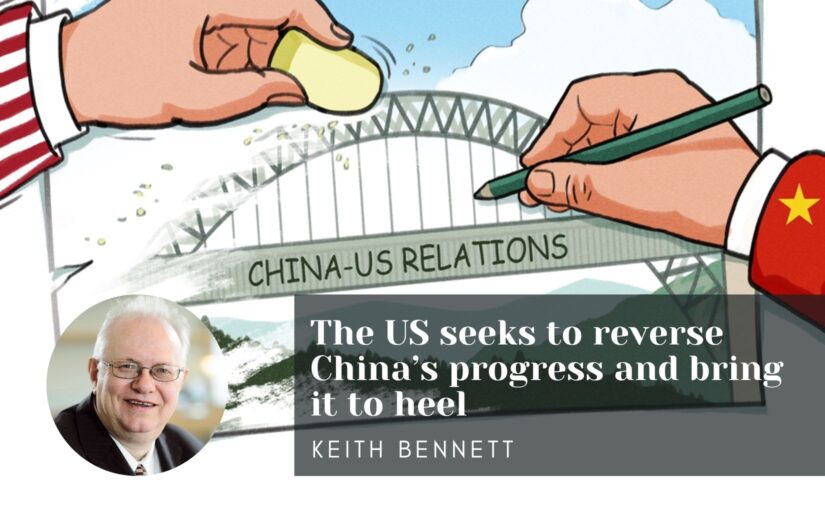
The US seeks to reverse China’s progress and bring it to heel
Meeting on the theme of Trump’s Presidency and the Prospects for Peace in 2025, it is natural we look especially at the war raging in Ukraine for nearly three years and at the situation in West Asia, as a tentative ceasefire emerges after more than 15 months of unrelenting genocide in Gaza. With so many thousands of lives being lost is it self-indulgence or overreach to also turn our attention to the Asia Pacific region?The International Manifesto Group (IMG) organised a webinar on ‘Trump’s Presidency and the Prospects for Peace in 2025’ on Sunday 19 January, the day before the US presidential inauguration.
The speakers were:
Ramzy Baroud (Palestine Chronicle)
Jacquie Luqman (Black Alliance for Peace)
Andrew Murray (Stop the War Coalition)
Gabriel Rockhill (Critical Theory Workshop)
Keith Bennett (Friends of Socialist China); and
Sara Flounders (International Action Center)
The event was moderated and introduced by Radhika Desai on behalf of the IMG and was also sponsored and supported by Friends of Socialist China, Palestine Chronicle, Critical Theory Workshop and the International Action Center.
Building for the event, the IMG wrote: “Given that the US is usually the prime instigator of our world’s conflicts and given that Trump sometimes spoke on the campaign trail about ending at least some of them, we ask what prospects the incoming Trump administration offers for peace. Will Trump’s second term be more or less aggressive than his first? Will he honour his campaign promise to end the war in Ukraine? Will he double down on his enthusiastic support for Israeli genocide? Will he escalate the New Cold War on China or attempt another ‘deal’? Will opportunities for peace in Korea and Iran be seized or squandered? What to make of Trump’s bellicose rhetoric in relation to Central America? How will the new administration affect humanity’s trajectory towards peace and multipolarity?”
Keith’s contribution focused on China and Korea and we reproduce his remarks below. Videos of all the contributions can be viewed on the IMG’s YouTube channel.
But today, no bilateral relationship is more important, more strategic and more fraught with dangers of global conflict than that between the United States and China.
Faced with the peaceful rise of China, a rise unparalleled in human history, it has essentially become a consensus among the otherwise contending wings of the US ruling class that the preservation of US global hegemony necessitates taking China as Washington’s principal adversary. From Greenland to the South Pacific. And from semiconductors to social media.
As with Cold War One and the Soviet Union, the US seeks to reverse China’s progress and, at best, bring it to heel, through a combination of a debilitating arms race, ideological subversion and economic and technological strangulation. A key difference is that not only has China drawn lessons from the collapse of the Soviet Union. Whereas the USA and the USSR were essentially economically insulated from one another, China has spent the best part of half a century integrating itself into the global economy, creating such facts on the ground in the process as ever more complex global supply chains, and with China accounting for some 11% of US foreign trade.
So, what does Trump’s return mean for China/US relations?
First, Trump revels in his role as Disruptor-in-Chief, so the first thing we should expect is the unexpected. Certainly, if he carries through on even a fraction of his recent threats regarding tariffs, not only will China face an economic challenge. The entire global economy, in a parlous enough state as it is, and not least the US economy itself, will be plunged into crisis.
But overall, there seems little reason to anticipate a fundamental change of direction. When Biden assumed the presidency, many had hopes for a return to a more rational and constructive China policy in Washington. This did not materialise. Far from reversing Trump’s anti-China measures, the Biden administration ratcheted them up substantially, especially in terms of trying to restrict China’s access to computer chips and other advanced technology.
To the extent there was change under Biden, it came essentially in two areas:
• His administration largely eschewed the openly racist rhetoric of Trump (kung flu, Chinese virus, etc.), which undoubtedly made life somewhat more tolerable for many Chinese and other Asian and Pacific Islander Americans.
• Whereas Trump was an ‘equal opportunities bully’ when it came to insulting and threatening allies and adversaries alike, Biden’s team worked hard, and with a considerable degree of success, to reinforce cohesion in NATO, get the EU onside, and reinvigorate and reinforce old alliances, such as those with Japan, South Korea and the Philippines, all with a view to confronting China, along with Russia, the Democratic People’s Republic of Korea (DPRK) and other states in Washington’s crosshairs.
So, even if Trump ups the ante with China, it will not break the essential continuum established by Barack Obama and Hilary Clinton with their 2011 ‘pivot to Asia’.
The ‘team of rivals’ that Trump has been assembling certainly lacks the intellectual brilliance of that forged by Abraham Lincoln, but it is not monolithic on China.
Trump himself cares little for ‘liberal democracy’ and, on that level, his antipathy to China probably lacks the deep ideological foundation that the US Democratic Party has come to increasingly embody. His motivation is more straightforwardly venal and mercenary. He will fight ruthlessly but may be prepared to cut a deal if he feels the terms are good. Or, perhaps as importantly, can present it as a win. We need to think only of his apparent volte face on TikTok, doubtless related to its ability to help feed his social media obsession.
The same cannot be said for his proposed Secretary of State Marco Rubio, who clearly will not be satisfied with anything less than the overthrow of the Communist Party of China.
A similar orientation can be seen on the part of a number of Trump’s other nominees, including those to be given trade, defence and national security portfolios.
But this, in turn, is different from the stand of Trump’s current ‘bestie’ (although for how long is anyone’s guess) Elon Musk, whose Shanghai factory accounts for half of Tesla’s global production.
Another area where this pattern can be expected to assert itself is in diplomacy and hence on the international balance of forces. As mentioned, while the Biden administration strove, with considerable success, to unite the imperialist camp, in the case of Trump, from Angela Merkel to Justin Trudeau, if there’s one thing he seems to enjoy more than insulting America’s adversaries it’s insulting America’s allies.
The Asia Pacific region is where key issues still unresolved from the 1940s continue to fester and where the interests of nuclear powers, principally the United States, China, Russia and the DPRK, collide and at times coincide. How will Trump, in his second presidential term, react to tensions in the Taiwan Straits or the South China Sea?
On the Korean peninsula, will he once again resort to threats of unleashing “fire and fury”, as he did in the early stage of his first presidential term or will he seek a further meeting with Kim Jong Un? No other serving US president ever dared to meet the top leader of the DPRK, something that Trump did three times, even accepting Kim Jong Un’s invitation to step into the DPRK. Even after negotiations broke down, the two men are understood to have continued private correspondence. On the campaign trail, Trump spoke of his relationship with Kim Jong Un and of his desire to get back to dialogue.
But the DPRK is not the same country as in Trump’s first term. Its nuclear weapons program, along with its delivery mechanisms, is considerably further advanced and its international position apparently strengthened by its new strategic alliance with Russia. On the other hand, the DPRK appears, at least for now, to have tired of the volatile, unpredictable and unreliable diplomacy of the USA, which had stymied and frustrated some three decades of DPRK efforts to normalise relations.
Regarding China, as Inauguration Day looms, Trump appears to be playing the same game of personalised diplomacy. An invitation to President Xi Jinping will see the unprecedented attendance of Vice President Han Zheng at tomorrow’s ceremony. Commenting on his phone call with President Xi on Friday, Trump said it was, “a very good one for both China and the USA. It is my expectation that we will solve many problems together and starting immediately. President Xi and I will do everything possible to make the world more peaceful and safe!”
According to China’s Xinhua News Agency: “Trump thanked Xi for his congratulations, saying that he cherishes his great relationship with Xi, hopes to continue to maintain dialogue and communication, and looks forward to meeting Xi at an early date. The United States and China are the most important countries in the world today, and they should maintain long-lasting friendship and work together to safeguard global peace.”
Of course, Trump never seems to have a phone call with another world leader that he doesn’t seem to think has gone great. And just the day before, the Chinese Foreign Ministry spokesperson slammed comments by Marco Rubio, as “unwarranted attacks” after the senator – in his confirmation hearing – called China “the most … dangerous near-peer adversary” the US had ever faced.
But significantly there has been no repetition of Trump’s December 2016 pre-inauguration phone call with the secessionist leader of China’s Taiwan province. Although there will be quite senior Taiwan representation, from both the ruling DPP and the opposition Kuomintang, at tomorrow’s inauguration.
And last night, describing it as an exclusive, the Wall Street Journal reported that Trump had told his advisers that he wants to visit China within his first 100 days in office. Perhaps significantly, the Xinhua News Agency was quick to report this.
How these relationships play out will have a major bearing on the future of the world in the days to come.
https://socialistchina.org/2025/01/24/t ... t-to-heel/








